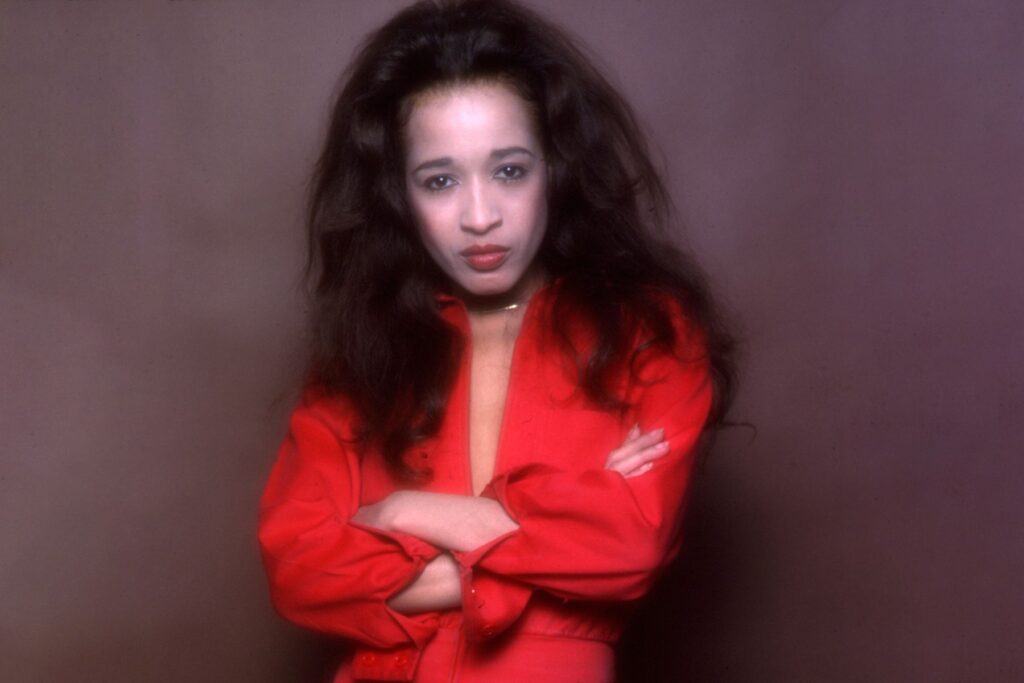
Nothing Could Ever Silence Ronnie Spector, Least of All Phil Spector
Here’s to Ronnie Spector, the loudest noise of the 20th century, the queen of the New York dolls, the ultimate rock & roll goddess. She belted her way into history with the Ronettes’ 1963 hit “Be My Baby,” flexing the bombastic power of her raw young voice, all brash passion and streetwise bravado. She made a bold promise in the first verse of her first hit: “We’ll make them turn their heads, every place we go.” She lived up to that promise her whole life. Ronnie Spector was the Spanish Harlem incident who blasted into the world and fucked it up forever. Her voice lives in the soul of anyone who’s heard it, which is why we’re grieving the news of her death at 78.
“Be My Baby” was the hit that took three teenage girls from the streets of Spanish Harlem and made them legends, all glam mascara and fire-hazard beehive hairdos and the unquenchable craving in Ronnie’s voice. That song can still transform anyone who hears it, just as it always transformed her. As she said a couple of years ago, “It just does something to my whole body.” Her hair was taller and meaner and scarier than all four Shangri-La’s combined, plus the drummer from the Honeycombs. When Madonna first blew up in 1985, she proclaimed, “I like to look the way Ronnie Spector sounded: sexy, hungry, totally trashy.”
In 2016, Rolling Stone’s David Browne asked if she had a bucket list. She said, “I’ve outgrown that. Now it’s a ‘fuck it’ list.” But Ronnie always had that “fuck it” snarl in her voice, even as an ingenue. Even in a non-hit like “You Came, You Saw, You Conquered,” you can hear that “fuck it,” all street-punk aggro wrapped up in teen romance. Has any singer sounded so tough?
She needed every bit of that toughness. When she married her producer Phil Spector, she thought her dreams were coming true. As she wrote in her excellent 1990 memoir, Be My Baby, “He was the only guy I ever met who could talk me into an orgasm.” But he held her prisoner in their mansion, behind guards and barbed wire. She finally left in 1974, her career in ruins, but fought her way to the musical redemption she deserved.
So many artists have built their legends around worshipping Ronnie Spector — or just trying to live up to her spirit. The first one, obviously, was Phil Spector, who made his best records for the Ronettes. The Beatles and the Rolling Stones basically invaded America just as an excuse to meet Ronnie. The New York Dolls invented punk by trying to imitate her. Then there’s Bruce Springsteen and David Bowie. (Should we mention Eddie Money? Of course we should.)
Elton John’s glam anthem “Bennie and the Jets” is his fan letter to her, or at least that’s how I’ve always heard it. The girls in the song are Candy and Ronnie and Bennie, an in-joke since Bennett was her birth name. Bob Seger told Rolling Stone’s Andy Greene that “Be My Baby” was the song that inspired “Night Moves” — the song he sings alone in the dark, when he’s “hummin’ a song from 1962.” (It came out in 1963, but never argue with Bob Seger.)
Brian Wilson once told me how Ronnie’s voice changed his life, in a 1999 phone interview. I asked him where “Good Vibrations” came from. He said, “God. And Phil Spector. God, Phil Spector, and the Beach Boys all combined.” It was mid-afternoon, so naturally Brian was watching The People’s Court, but when he started talking about “Be My Baby,” he actually muted the TV. The first time he heard that song in the car, he pulled over to cry. With “Good Vibrations,” he was just trying to echo her. “It was like hearing ‘Be My Baby’ for the first time,” he told me. “I knew God was with us when we were doing it. It’s no ‘Be My Baby,’ but it’s a good record.”
She grew up in Harlem, surrounded by a huge biracial family, but with her African American and Cherokee heritage, she always felt like an outsider. She formed a group with her sister and cousin to sing at sock hops and bar mitzvahs. But it all changed when she met Phil Spector, who threw all his genius into “Be My Baby.” She rehearsed her vocals in the ladies’ room at LaGuardia Airport, then flew across the country to sing it for Phil, hoping to sound “like a girl Elvis.” She defined rock with “Be My Baby”; she defined roll with “Walking in the Rain,” the wistful ballad where she yearns for her dream boy. Phil put an actual thunderstorm on the record. I still can’t decide which Ronettes hit I love more, after a lifetime of listening.
But her marriage became a nightmare, as her husband refused to let her out of the house. He kept making her watch Citizen Kane over and over. (The first time she ever dared to say the word “no” to him came when she refused to see Kane anymore.) He buried the Ronettes’ career, not letting her near the stage or the studio, and didn’t even release some of her finest work, like the heartbreaking 1966 ballad “I Wish I Never Saw the Sunshine.”
“Be My Baby” whisked her to the big time, and then to the lowest lows of adult heartbreak. By the Eighties, when she got dropped by her record company and couldn’t get a gig, she figured she’d bombed out of the Ronnie Spector business. Then one night, she got a phone call in her kitchen, some guy named Eddie Money, asking, “What are you doing these days?” She said, “The dishes. When can we get started?”
Eddie was a meat-and-potatoes rocker who wanted her to sing on his new single, “Take Me Home Tonight,” which goes on to become one of the immortal hits of the Eighties. It sounded bizarre on the radio at the time and still does — there’s no attempt to explain who Ronnie is. Eddie says, “Just like Ronnie sang,” and that’s when Ronnie steps in to utter those four magic words: “Be my little baby.” That’s all it takes. In this song, we hear the most ordinary guy (“Eddie Mahoney” to his mom) get touched by a goddess, as her voice transforms him from a clod into a star. “Take Me Home Tonight” has never left the radio, like “Be My Baby” itself.
Ronnie Spector’s voice is everywhere, and it is everything. It’s in the way the Jesus and Mary Chain began their classic debut Psychocandy with the “Be My Baby” drum intro. (They called it “Just Like Honey.”) The L.A. hair-metal band Poison began their debut album with the same beat, as if Sunset Strip glam metal and Scottish feedback are just two different ways to channel Ronnie Spector. Martin Scorsese used “Be My Baby” to kick off his first big movie, Mean Streets, the all-time coolest rock & roll movie moment. It’s the same beat that begins Dirty Dancing and ends Lost in Translation. Hal Blaine is on the drums, but Ronnie drives it home: Wherever you hear that beat, you’re hearing her.
Her fanboy Joey Ramone produced the beautiful She Talks to Rainbows, the 1999 musical comeback she’d spent decades aiming for. When she sang Johnny Thunders’ “You Can’t Put Your Arms Around a Memory,” she made it hers. After that, she was never off her game again. Her excellent 2016 English Heart was a set of British Invasion tunes, with one of the all-time great Rolling Stones covers, the gender-flipped “I’d Much Rather Be With the Girls.” It was fitting because Mick Jagger did plenty of Ronnie imitations in his early days — just listen to him Ronnie it up in the Stones’ first U.S. hit, “Tell Me.”
The Beatles always idolized her. When they arrived in the U.S. in 1964, John Lennon spent his first night in New York in his hotel room, calling up radio DJs and asking them to play the Ronettes. She took the Fabs up to Harlem for barbecue ribs; as she said, “Nobody bothered them because they thought they were just some Spanish dorks.” When she and her sister double-dated John and George, John whispered, “Ronnie, sing a bit of ‘Be My Baby’ in my ear.’” “It Won’t Be Long” is merely their most explicit Ronettes tribute.
George later wrote a 1970 comeback single for her, “Try Some Buy Some,” with the B side “Tandoori Chicken.” She told him, “I don’t understand a word of it.” He said, “That’s OK. I don’t either.” But the single flopped. As she fumed in her book, “My husband produced ‘My Sweet Lord’ for George Harrison and ‘Instant Karma’ for John Lennon, but when it came time to record me, what did he pick? A song about Indian chicken.”
The Ronettes finally made it into the Rock & Roll Hall of Fame in 2007, so Ronnie had a celebration party in NYC. By 2 a.m., she hadn’t shown up, as people started grabbing their coats to slip out. I was there with the Yeah Yeah Yeahs, the NYC punks who perfected her glam-trash punk aesthetic, and we weren’t leaving — if you think there’s a chance Ronnie Spector might walk into a room, would you leave? By 4, the stragglers were pretty much down to me and the band, but that’s when Ronnie showed up, just to own the room for a few minutes and then breeze on, not a bit surprised to see people dazed at her presence.
She kept making her music to the end, with her manager and husband of 38 years, Jonathan Greenfield. She lived in suburban Connecticut, a few minutes away from her old friend Keith Richards — they loved to hang at his piano and sing together. She was grateful she’d lived long enough to see the #MeToo era. As she told The Guardian’s Jenn Pelly, “When I was making my hit records, my ex was always ‘the genius’ and you felt like: ‘Well, who am I?’ You felt that small. I’m so glad I’m still on this Earth to see women going out there and saying: ‘You can be fabulous like me, you can do anything.’” Her voice still has the power to make anyone feel that power. Rest in “Be My Baby,” Ronnie Spector.


